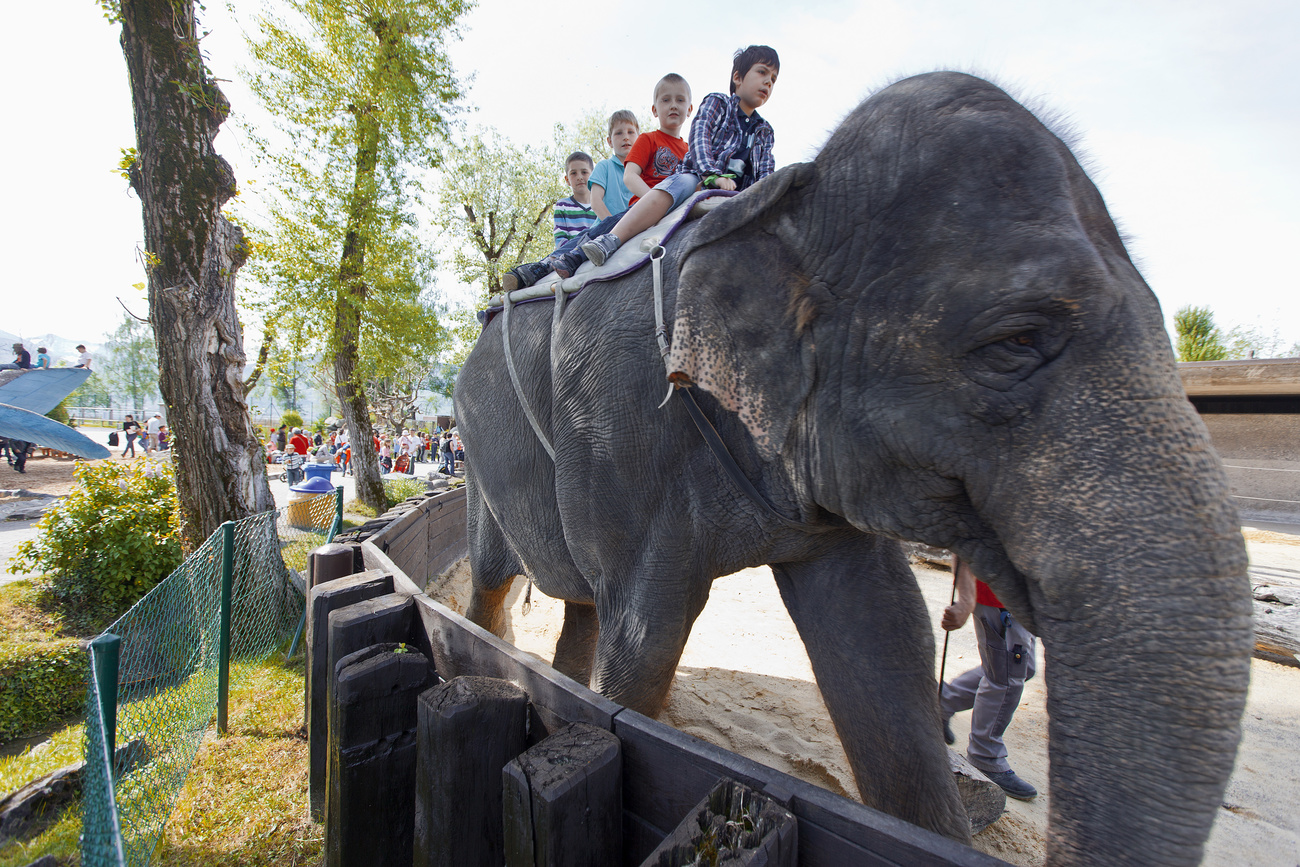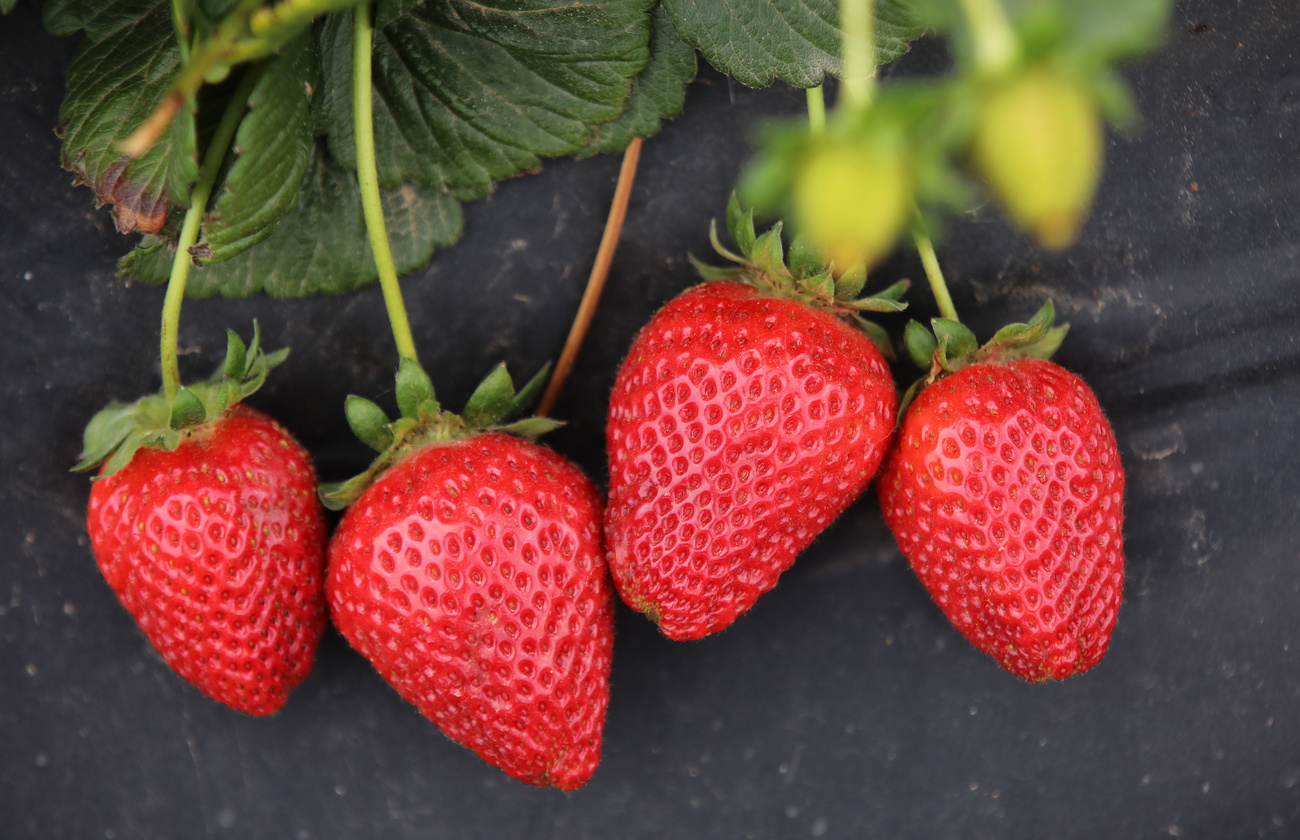
Switzerland Today
Hello from Bern,
The sun is out in more than one way here in Bern. Greenpeace unraveled a massive sun poster in front of the federal building today to call for more investment in solar power.

In the News: No exceptions for Switzerland in the EU market; army budget looks set to increase; and a new elephant was born.
- Switzerland won’t receive any preferential treatment over European Union member states, warned the EU ambassador to Switzerland, Petros Mavromichalis. In an interview in the NZZ this morning, the ambassador said that making any exception for Switzerland would weaken the single EU market and thus, the country would also be expected to abide by EU rules such as the use of the dispute mechanism at the European Court of Justice. The ambassador also said that institutional issues still need to be resolved before the bloc and Switzerland can agree on other access agreements.
- One chamber of parliament backed a budget boost for the army. It agreed that the amount should increase from 2023 onwards so that by 2030, the defense budget would reach 1% of GDP. That would amount to around CHF7 billion. Today it is CHF5.6 billion, which is 0.67% of GDP. In 1990, the defense budget was 1.34% of GDP. The debate is taking place at a time of heightened concerns around security and defense in the context of the Ukraine war.
- An Asian elephant was born on Saturday at the Knie Children’s Zoo in Rapperswil. The male calf was born at 3:51 am in what the Zoo called an easy and surprisingly quick birth. His first moments of life are also on videoExternal link for anyone to see.

Syngenta chief plants a provocative seed
There are few topics that stir as much controversy as the food we eat. And among the most controversial of them all is the topic of organic agriculture.
But on Sunday, Syngenta CEO Erik Fyrwald didn’t shy away from controversy when he told the NZZamSonntag paper that organic agriculture is bad for the climate and is worsening the food crisis in Africa.
Organic farming yields can be up to 50% lower than non-organic farming, depending on the product, he argued. “The indirect consequence is that people are starving in Africa because we are eating more and more organic products,” he told the NZZ.
He added that organic farming requires more land and is bad for the climate because the fields are usually ploughed, which increases CO2 emissions. He argued that the answer to the problem is in regenerative agriculture, which uses crop rotation techniques from organic farming and the targeted use of pesticides and GMOs to increase yields.
Basel-based agribusiness giant Syngenta hasn’t exactly been on friendly terms with many NGOs in Switzerland. The pesticide vote, the genome editing exclusion from the GMO moratorium among other topics have made the company a popular punching bag. Kilian Baumann, a Bernese organic farmer and president of the Swiss Small Farmers’ Association, called Fyrwald’s arguments “grotesque”.
He said the Syngenta CEO was “fighting for sales” as farmers are using “fewer and fewer pesticides”.
Even the usual pro-business lobby in Switzerland has derided the company since Chinese state-run firm ChemChina bought Syngenta several years ago. One politician went as far as to comment on the irony that the company’s CEO is blaming western consumers when it is owned by the Chinese communist state.
While Syngenta got people talking, the company may have also unintentionally created a united front against it.

Lots of jobs, not enough people. Maybe Switzerland should create fewer job hurdles
Most of the stories about personnel shortages have focused on lucrative IT and engineering jobs, where the competition is stiff. But a growing number of employers across sectors are now reporting problems finding people to fill jobsExternal link.
The Aargauer Zeitung reported today that there are currently more vacancies in the Swiss job market than there have been for years. “Employers are desperately looking for skilled workers”.
The unemployment rate was a record low 2.3% in April, and the number of job seekers is falling steadily. Only 183,000 people are looking for work in the country, whose population is 8 million.
The shortage appears to be the most worrisome in trades like construction, management, hospitality, sales, and healthcare. Some of these sectors haven’t reported shortages for years.
The reasons, writes the paper, is largely due to the post-pandemic boom. Everyone is looking for workers at the same time. This is happening at a time when more people are getting fed up with poor work conditions. People don’t just want better pay, they want flexible schedules and fringe benefits.
While there are all kind of solutions being thrown out there like better conditions for parents or older employees, there’s little talk about another area that could help – being more flexible around qualifications to do some of these jobs. What happened to learning on the job?
More

Zurich says farewell to Warhol’s Marilyn Monroe on Monday evening
On Monday evening, art collectors and admirers will kick off the spring art auction season with the sale of Andy Warhol’s 1964 silk-screen of Marilyn Monroe, “Shot Sage Blue MarilynExternal link”. It is estimated to sell for about $200 million, which would make it the most expensiveExternal link 20th-century artwork ever to sell at auction.
The pool of buyers who can afford to spend more than $100 million for a painting remains small, writes the New York Times. But for anyone with deep pockets, they will do more than become the proud owner of a classic Warhol.
The painting was in the collection of Swiss dealers Thomas and Doris Ammann, and the proceeds from Monday’s sale of 36 works will go to their foundation, which supports children’s programs. The Ammann siblings founded a Zurich gallery in 1977. Thomas died in 1993, and Doris led the gallery until she passed away last year.
In an unusual arrangement, the buyer will also have a say in choosing which charity 20% of the “Marilyn” proceeds are allocated, Christie’s auction house said on Sunday.

In compliance with the JTI standards
More: SWI swissinfo.ch certified by the Journalism Trust Initiative








